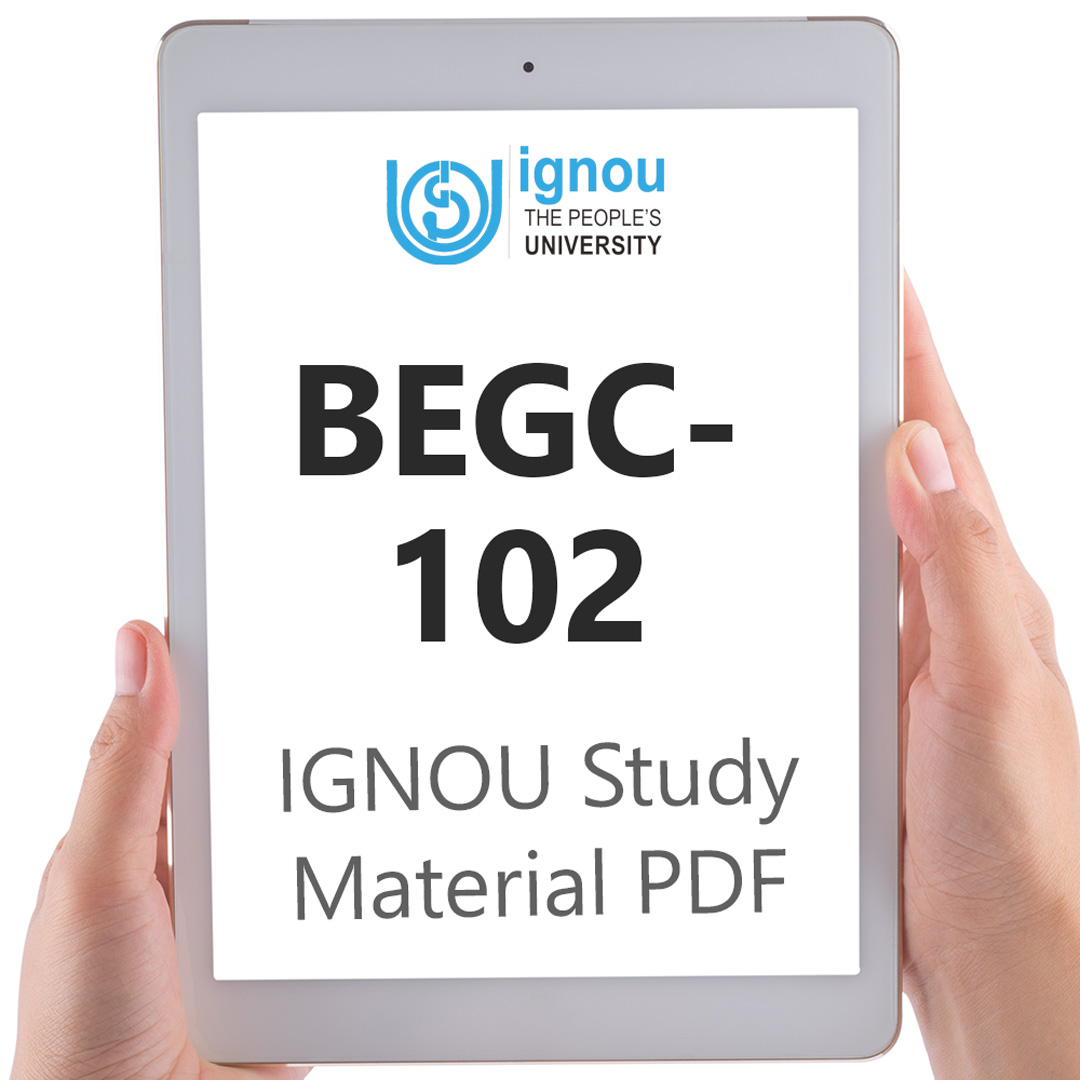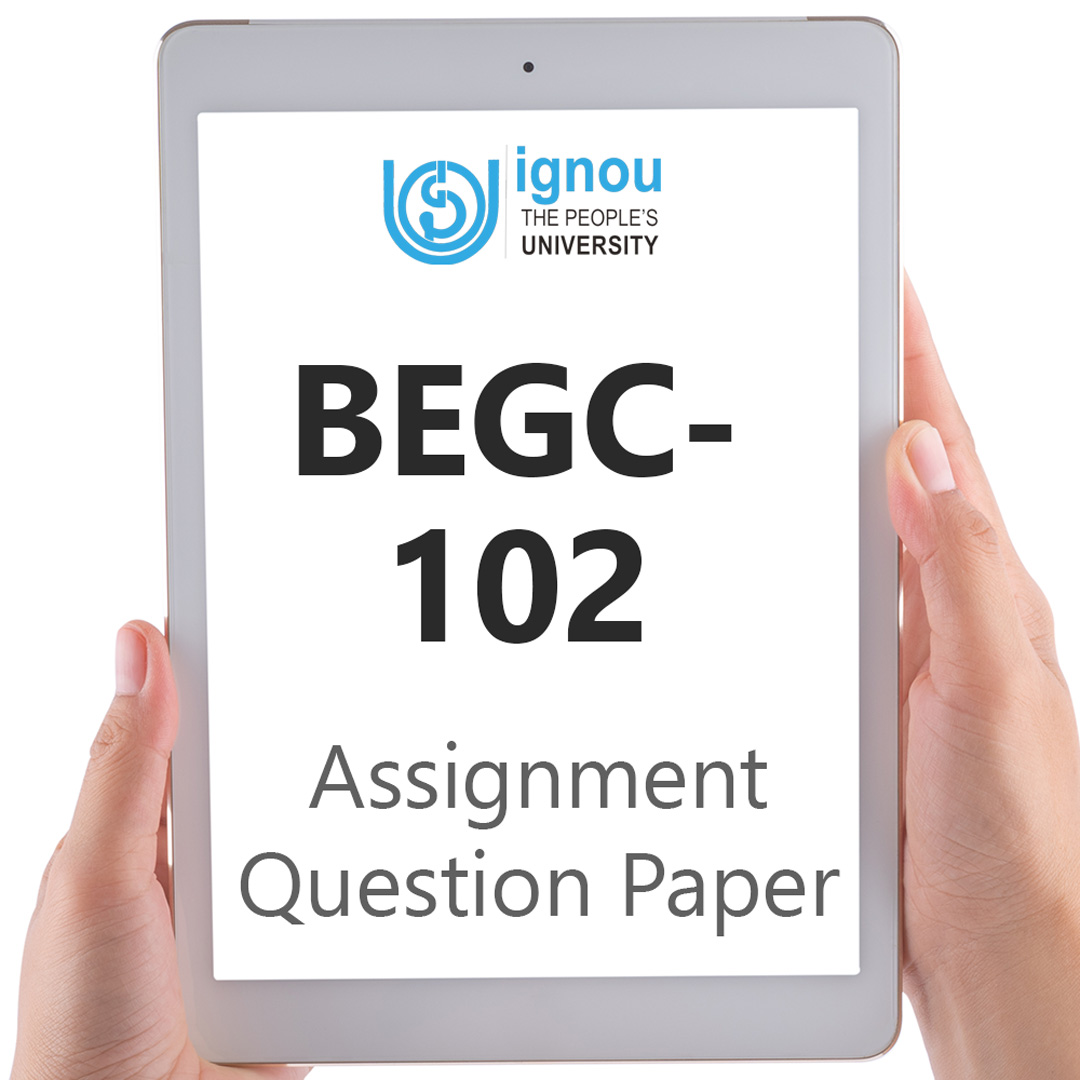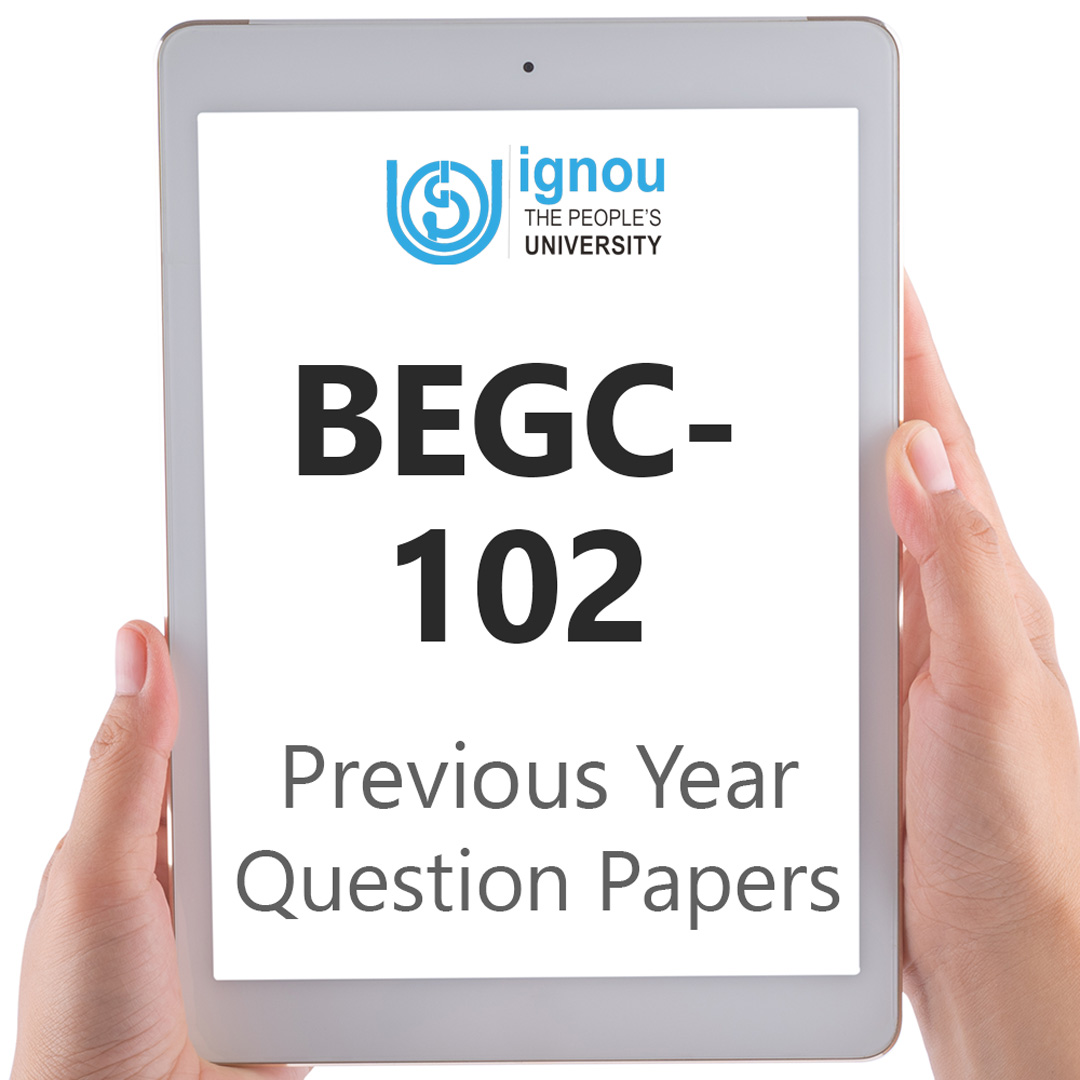If you are looking for BEGC-102 IGNOU Solved Assignment solution for the subject European Classical Literature, you have come to the right place. BEGC-102 solution on this page applies to 2023-24 session students studying in BAEGH courses of IGNOU.
BEGC-102 Solved Assignment Solution by Gyaniversity
Assignment Code: BEGC-102/TMA/2023-24
Course Code: BEGC-102
Assignment Name: European Classical Literature
Year: 2023-24
Verification Status: Verified by Professor
Section A
Q1) Write short notes in about 100 words each:
(i) Greek Tragedy
Ans) Greek Tragedy is a genre of ancient Greek drama that emerged in the 5th century BCE and left an indelible mark on the history of theatre. It features plays with tragic heroes, typically figures of noble stature, who undergo a reversal of fortune due to their hamartia, or fatal flaw. These characters grapple with profound moral and existential questions, often meeting a catastrophic end. Renowned playwrights like Aeschylus, Sophocles, and Euripides crafted enduring works in this genre. Greek tragedies explore themes like fate, free will, divine intervention, and the consequences of human actions, captivating audiences with their emotional depth and philosophical inquiries.
(ii) Roman Comedy
Ans) Roman comedy refers to a theatrical genre in ancient Rome that emerged around the 3rd century BCE. It was inspired by Greek New Comedy but adapted to Roman culture. Notable playwrights of Roman comedy include Plautus and Terence. These comedies featured humorous plots, stock characters, and situations designed to entertain and amuse the Roman audience. While they borrowed elements from Greek comedy, Roman comedies often had a distinct Roman flavour, incorporating elements of daily life and social satire. These plays explored themes like love, family, and social class, offering a light-hearted and entertaining escape for the Roman people from the challenges of their daily lives.
Q2) Reference to the Context in about 100 words each:
(i) “… These tribulations and unbearable expenses
Are just a few f the ills that come with dowries.
But she who brings no cash does bring obedience,
While rich girls kill their husbands with their mischief and extravagance.”
Ans) These lines are from Euripides' play "Medea." The context involves a chorus of Corinthian women discussing the concept of dowries and the advantages of marrying a woman who brings no dowry. The women are emphasizing the burdensome nature of dowries, which can lead to financial difficulties for the groom's family.
They argue that brides without dowries can be more obedient and responsible, contrasting them with wealthy brides who are seen as causing trouble with their extravagance. This dialogue reflects the societal norms and expectations regarding marriage and financial arrangements in ancient Greece, highlighting the complexities of gender roles and social dynamics.
(ii) “…When my good father taught me to be good,
Scarecrows he took for living flesh and blood. Thus, if he warned me not to spend but spare
The moderate means I owe to his wise care,
‘Twas, “See the life that son of Albius leads!”
Ans) These lines are from Horace's Satire 1.1, where the speaker reflects on the lessons his father taught him. In this context, the speaker acknowledges his father's influence in teaching him to be virtuous and frugal. The reference to "scarecrows" as "living flesh and blood" illustrates the impact of his father's advice.
The scarecrows, symbolic of wastefulness, are transformed into real people through his father's wisdom. The speaker emphasizes the importance of his father's guidance in instilling values of moderation and thrift, which he attributes to his father's desire for him to avoid the extravagant and unwise lifestyle of Albius.
Section B
Answer the following in about 350 words each: 4 X 20 = 80
Q1) Write a detailed note on the difference or similarities between the Homeric Epic and the Roman epic.
Ans) The Homeric Epic, comprising the "Iliad" and the "Odyssey," and the Roman Epic, notably represented by Virgil's "Aeneid," share fundamental characteristics as epic poems, yet they diverge in significant ways due to differences in cultural context, thematic emphasis, and the treatment of heroism.
Similarities between the two traditions include their epic scale, featuring heroic figures and their extraordinary adventures. Both the "Iliad" and the "Aeneid" are grounded in the heroic ethos, portraying characters who embody virtues such as courage, loyalty, and honor. The grandiosity of their narratives, featuring divine interventions, epic battles, and arduous journeys, contributes to the epic genre's universality.
However, a key distinction lies in the cultural contexts that shaped these epics. The Homeric Epics emerged from ancient Greece, reflecting the values and beliefs of a polytheistic society where individual prowess and the pursuit of personal glory were paramount. In contrast, the Roman Epic, exemplified by the "Aeneid," emerged from the Roman Republic, later transformed into the Roman Empire. Virgil's work reflects the Roman emphasis on duty, fate, and the interconnectedness of the individual with the state.
The themes explored in these epics further underscore their differences. The "Iliad" primarily revolves around the Trojan War, examining the destructive nature of human hubris and the consequences of warfare. The "Odyssey," while still focusing on heroism, shifts towards a more personal and domestic sphere, exploring the challenges faced by Odysseus on his journey home. Virgil's "Aeneid," on the other hand, is deeply rooted in the mythological foundation of Rome, tracing the destiny of Aeneas as he fulfils his duty to establish Rome, emphasizing the importance of sacrifice for the collective good.
The treatment of heroism is another area of distinction. In the Homeric tradition, heroism often revolves around individual feats and personal glory, while the Roman Epic places greater emphasis on the hero's role in the founding and destiny of the state. Aeneas, the protagonist of the "Aeneid," embodies the Roman virtues of piety, duty, and commitment to a higher purpose.
In conclusion, while the Homeric Epic and the Roman Epic share common features as epic poems, including heroic figures and grand narratives, their differences in cultural context, themes, and the treatment of heroism reflect the unique values and priorities of ancient Greek and Roman societies. The Homeric Epics celebrate individual heroism and the complexities of human nature, while the Roman Epic, particularly the "Aeneid," highlights duty, destiny, and the symbiotic relationship between the hero and the state.
Q2) Evaluate Oedipus Rex as a tragedy for all times.
Ans) "Oedipus Rex," a masterpiece by Sophocles, stands as a tragedy for all times due to its exploration of enduring human themes that transcend cultural and temporal boundaries. The play's profound examination of fate, free will, and the consequences of human actions makes it a timeless and universal cautionary tale.
At the heart of the tragedy is the theme of fate, an element that has fascinated humanity across centuries. Oedipus, despite his attempts to defy the prophesied destiny, ultimately fulfils the grim predictions. The inevitability of fate raises existential questions about the human condition and the limits of individual agency. This theme resonates with audiences throughout history, as people grapple with the tension between destiny and personal choice in their own lives.
The exploration of free will is another aspect that contributes to the timelessness of "Oedipus Rex." Oedipus, driven by a relentless pursuit of truth and self-discovery, unknowingly brings about his own tragic downfall. The play prompts contemplation on the consequences of human actions, the complexity of decision-making, and the unforeseen outcomes of seemingly innocuous choices. This introspective dimension transcends cultural and temporal contexts, as individuals from different eras find parallels in their own struggles with personal responsibility and the unforeseen repercussions of their decisions.
Moreover, the play delves into the nature of human suffering, a universal experience that resonates across ages. Oedipus, once a revered king, becomes a symbol of tragic affliction. His journey from ignorance to knowledge and the subsequent self-inflicted suffering reflects the broader human experience of grappling with the harsh realities of life. The play's portrayal of the inexorable nature of suffering and the search for meaning in the face of adversity is a poignant reflection of the human condition.
"Oedipus Rex" also explores the relentless pursuit of truth, a theme that remains relevant throughout history. Oedipus, in his quest for the truth about his origins and the cause of the city's plague, embodies the human desire for knowledge and understanding. The play raises profound questions about the consequences of seeking truth without fully comprehending its implications, an inquiry that transcends cultural and temporal boundaries.
Q3) Examine Pot of Gold as a Roman comedy.
Ans) Plautus's "Pot of Gold" (Aulularia) is a quintessential Roman comedy that adheres to the conventions of the genre, offering a delightful blend of humour, mistaken identities, and clever plot devices. As a Roman comedy, it reflects the influences of Greek New Comedy while incorporating distinctive Roman elements.
At the heart of the play is the theme of hidden wealth, a recurring motif in Roman comedies. Euclio, the miserly old man and central character, discovers a pot of gold in his house. The comedic tension arises from his attempts to keep this newfound fortune secret while others, including his own daughter's lover, plot to get their hands on it. The concept of hidden treasure adds an element of intrigue and sets the stage for a series of humorous and convoluted events.
The characters in "Pot of Gold" are archetypal figures commonly found in Roman comedies. Euclio, the miser, embodies the stock character of the old man who is protective of his wealth. The cunning slave, Lyconides, represents the clever servant archetype, orchestrating schemes to achieve his goals. These characters contribute to the play's comedic dynamics, as their interactions and stratagems create a web of misunderstandings and humorous situations.
The language and dialogue in "Pot of Gold" showcase Plautus's skill in wordplay and linguistic humour. The playwright often employs puns, double entendre, and clever repartee to elicit laughter from the audience. The use of colloquial language and everyday speech adds to the accessibility and relatability of the play, engaging a broad spectrum of viewers. Mistaken identity is another prominent feature of Roman comedy, and "Pot of Gold" is no exception. The play involves a case of mistaken identity regarding the identity of the pot's owner, leading to a series of comic misadventures and misunderstandings. The resolution of these confusions contributes to the play's overall comedic structure.
As with other Roman comedies, "Pot of Gold" follows a predictable pattern in terms of its resolution. The play concludes with a harmonious ending, where order is restored, and characters find their rightful places. The comedy serves not only to entertain but also to reinforce social norms and values, aligning with the didactic purpose often associated with Roman comedic theatre.
Q4) Examine the themes of Horace’s satires, especially Satire 1:4.
Ans) Horace's satires, a collection of literary works that provide insightful commentary on Roman society, touch upon various themes that illuminate human behaviour, morality, and the pursuit of virtue. In Satire 1:4, Horace specifically explores the theme of contentment and cautions against excessive ambition, advocating for a simpler and more measured approach to life.
In Satire 1:4, Horace introduces the character of Damasippus, a man obsessed with acquiring wealth and social status. Through Damasippus, the poet critiques the pervasive ambition and unhealthy desires that drive individuals to the extremes of excess. Horace employs humour and satire to highlight the absurdity of Damasippus's pursuits, urging the audience to reflect on the futility of such relentless ambition.
The theme of contentment emerges as a counterpoint to Damasippus's insatiable desires. Horace encourages the audience to appreciate the value of a simpler life, free from the burdens of constant striving and the pursuit of wealth for its own sake. This theme aligns with Horace's broader philosophical stance, emphasizing the importance of balance, self-awareness, and moderation.
Throughout his satires, Horace consistently addresses the moral fabric of Roman society. His observations on human behaviour serve as a social critique, encouraging readers to reflect on their own actions and choices. The satires often feature Horace as a persona, engaging in witty and self-deprecating banter that underscores the importance of humility and self-awareness.
Humour is a crucial element in Horace's satires, serving both as a literary device and a means of social commentary. The poet's wit and irony allow him to expose the follies and vices of his contemporaries while entertaining his audience. Satire 1:4, in particular, utilizes humour to lampoon Damasippus's extravagant aspirations, transforming the narrative into a comedic exploration of human folly.
In conclusion, Horace's satires, including Satire 1:4, engage with themes such as contentment, the rejection of excessive ambition, morality, and the pursuit of virtue. Through humour and keen observation, Horace invites readers to reflect on the complexities of human nature and the values prevalent in Roman society. His satires remain not only literary masterpieces but also timeless reflections on the enduring aspects of the human condition.





